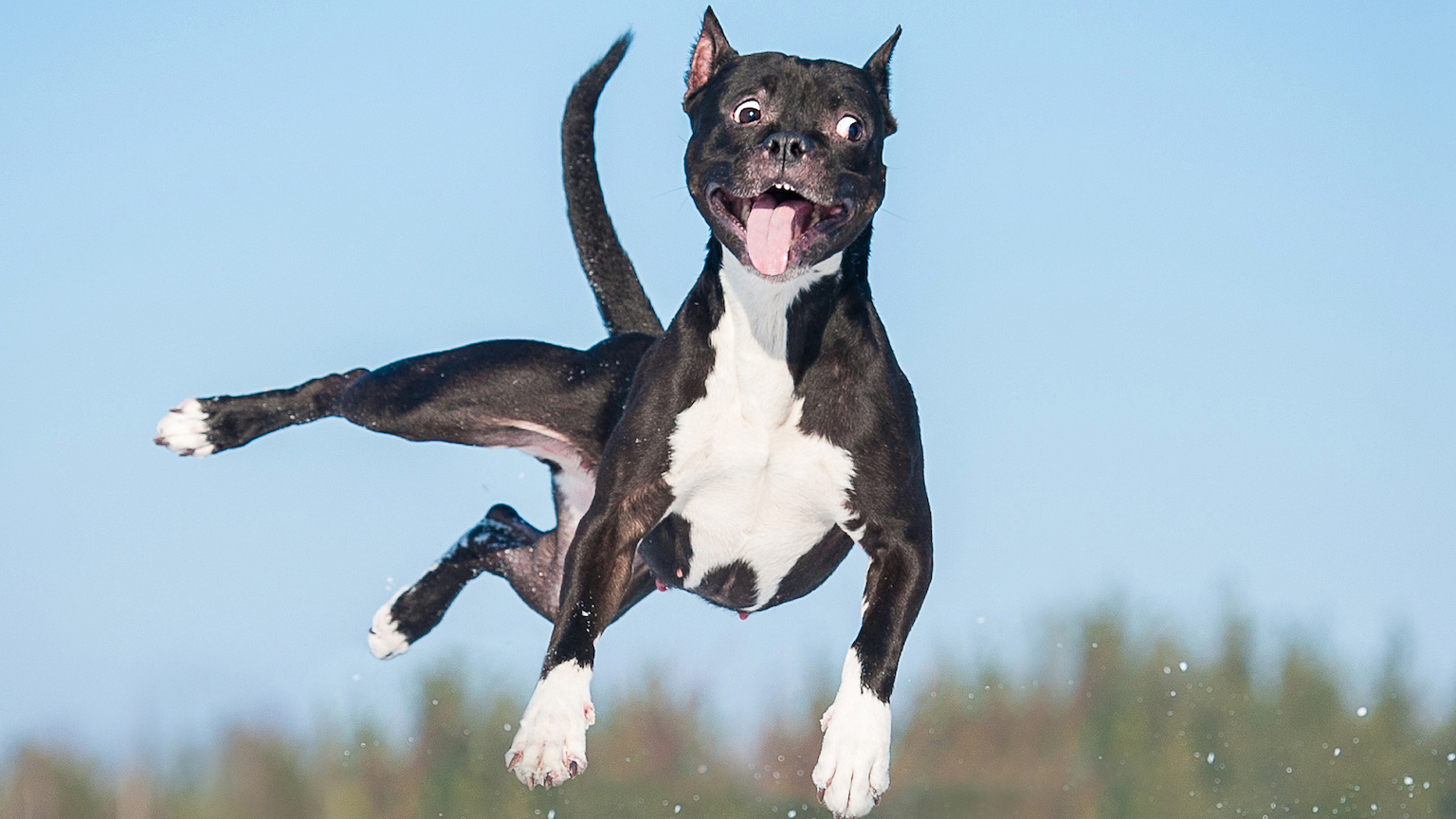
The Havanese is Cuba's national dog. It is a bichon-type, bichon-type dog. It is a descendant from the extinct Blanquito Del Habana as well as the Bichon Tenerife. They make excellent companions. They can be used for many jobs including retrieving, guarding, working, and working.
Do you make a great companion dog?
The Havanese, a small and lively dog, thrives on an active lifestyle. Although small and stubby, this breed can be highly trained and intelligent. They love to go on walks with their friends and play with them. They excel at agility courses and make excellent watchdogs.
The Havanese makes a wonderful companion dog. They are very friendly and love spending time with their owners. They also love tricks like jumping through the hula-hoop, rolling over and climbing onto balance beams. Although they need to be groomed often, their love and companionship are well worth it.
Legg-Calve-Perthes
Legg-Calve-Perthes is a degenerative joint disease in the hip area of the Havanese. It can lead to arthritis, muscle atrophy, and lameness. Treatment can include surgery. It depends on the extent and location of your disease. For mild cases, medication and medical therapy may be helpful. This disease is more likely in overweight dogs.

Legg-Calve-Perthes disease is an inherited condition. The lack of blood supply causes the head and femurs to become deformed. In severe cases, it can cause the knee cap to dislocate, which can lead to limited mobility and pain. This condition is most common in children. It is more common in white children.
Health issues
Havanese dogs have specific health requirements. Your veterinarian can determine which vaccinations your pet needs. The vaccines are available as early as 6 weeks. Checking your dog for any other health issues such as genetic disease may be a good idea. A vet can also recommend preventative measures such as flea- and tick medications. These medications are typically based on weight and are applied on your dog's skin.
Other health problems that Havanese dogs may have include bone and joint issues. Chondrodysplasia puntata results in uneven growth of the legs, which can lead to limping. Legg Calve Perthes, another medical condition, can cause joint pain or arthritis. Patellar luxation, or elbow joint slippage, may also affect Havanese. In addition to these health issues, Havanese can also suffer from liver shunt, which causes toxins to build up in the heart.
Care
Heart disease is the leading cause of death in Havanese dogs aged over 80. It is therefore important to keep your pet's heart healthy. Most heart problems in dogs result from a weakening or deterioration of one of their heart valves. This allows blood to leak back around a valve, straining it. Hearing a murmur in your pet's heart can help you determine if it is suffering from heart disease. A basic test can be performed by a veterinarian to rule other serious conditions like heart disease and irregular heartbeat. A veterinarian can give treatment recommendations for each dog's unique needs.
It is essential to take care of your Havanese's eyes in order for them to stay healthy. Eye care for Havanese can help prevent vision loss and relieve discomfort. There are many eye problems that can affect dogs, including chronic pain and corneal ulcers. There are many treatment options.
Grooming

Habanese grooming is complicated. First, consider the length of the coat. The Havanese is known for their long silk coat that consists of a short undercoat and a long outer coat. The outer coat may be straight, curly, or wavy, and it can be any color.
A Havanese's coat needs to be groomed daily. It should be brushed or sprayed daily with a fine mist sprayer. Drying the coat is better than wetting it. Your dog's fur should be brushed all the way to its skin.
FAQ
What are some signs that my dog might be sick?
There are many symptoms that indicate that your dog is sick. Symptoms include:
-
Vomiting
-
Diarrhea
-
Lethargy
-
Fever
-
Weight loss
-
A decreased appetite
-
Coughing
-
Difficulty Breathing
-
Bleeding from below the nose
-
In stool or urine, blood can be found
These are just some examples. Your vet will be able to tell you what to watch out for.
What should I do if my pet dog bites someone?
If you are attacked or threatened by an animal, ensure that it is not rabid. If this is not possible, then call for help. Do not try to resolve the situation on your own, as you may be seriously injured.
If the animal bites, but is not aggressive then you can take it to a vet clinic. Your vet will examine it, and then advise you if additional treatment is necessary.
Rabies shots are usually required in most cases. These should never be administered yourself. Only a qualified person should do so.
What are some things to consider before purchasing an exotic pet
Before you go ahead and buy an exotic pet, there are several things you need to think about. The first thing you need to do is decide whether you want to keep the animal as a pet or if you want to sell it for money. If you want to keep it as an animal pet, you need to ensure that there is enough space. Also, you need to determine how much time and effort it will take. It is not easy to care for an animal. However, they provide great companionship.
If you want to sell the animal you must find someone who is willing to buy it. You must ensure that the person purchasing your animal knows all about taking care of them. It is important to not overfeed your animal. This could cause problems for your animal's health later.
You should research every aspect of exotic pets before you buy them. Many websites can provide information on various species of pets. Be cautious not to fall for scams.
Statistics
- Pet insurance helps pay for your pet's medical care, with many policies covering up to 90 percent of your vet bills. (money.com)
- * Monthly costs are for a 1-year-old female mixed-breed dog and a male domestic shorthair cat less than a year old, respectively, in excellent health residing in Texas, with a $500 annual deductible, $5,000 annual benefit limit, and 90% reimbursement rate. (usnews.com)
- A 5% affiliation discount may apply to individuals who belong to select military, law enforcement, and service animal training organizations that have a relationship with Nationwide. (usnews.com)
- In fact, according to ASPCA, first-year expenses can sum up to nearly $2,000. (petplay.com)
- Here's a sobering reality: when you add up vaccinations, health exams, heartworm medications, litter, collars and leashes, food, and grooming, you can expect a bill of at least $1,000 a year, according to SSPCA. (bustle.com)
External Links
How To
How to train a cat for a pet
To train your cat, you should first understand what kind of animal he/she really is. Cats have complex brains. Cats are highly emotional and intelligent. If you want to make sure that your cat behaves well, then you must take into consideration his/her personality. You should know how to treat your cat.
It is important for cats to be independent. It means that they do not like to be told "no." You may be angry if they tell you "no". This is why you should never hit your cat when he/she does something wrong. It is important to show affection and love to your cat but you shouldn't treat them like a human being.
You can help your cat if you believe they are having problems. Talk to your cat calmly and gently. Don't shout at him/her. It can make your cat feel awful if you yell at her/him. Also, your cat can't be forced to eat. Sometimes your cat will not eat what you offer. If this happens, it is time to give treats. Don't give them too many treats, as this could cause overeating.
Keep your cat clean. Wash him/her thoroughly every day. Use a wet towel to clean off dust and dirt. Verify that your cat does not have fleas. Flea bites may cause skin irritation or allergies. If you notice any signs of fleas, then you should use a special shampoo to remove them.
Cats are social animals. They enjoy spending time with people. This is why it's important to spend time with your cat. Play with him/her, feed him/her, brush him/her, and cuddle him/her. These activities will make your cat happy.
If you want to train your cat, then you should start early. Start training your kitten when he/she is only two weeks old. Your kitten should be around three months old to start training him/her. Your cat will be fully grown by this time and ready to learn new things.
When teaching your cat tricks, you should go through each step step by step. For example, when teaching your cat to sit down, you should show him/her the chair first. Then you will reward your cat with a treat and say "sit". Keep repeating these steps until your cat gets it.
Remember, cats are intelligent. They are able to figure out how tasks should be performed. They still need patience and persistence. It is unrealistic to expect your cat can master a task immediately. Allow your cat to practice many times before giving up.
Don't forget cats are wild animals. They are naturally curious and playful. If your cat is free to roam, he/she could accidentally knock over things. It is important to keep your cat safe and away from other animals.